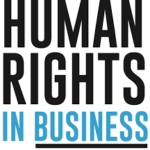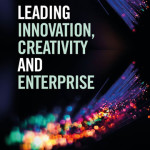Having been active in social justice movements since the 1960s, I would’ve liked for us to be further along than we are now. You might imagine that I’m a bit fatigued, even disheartened, six decades later. To the contrary, I’m as fired up as ever. I’m especially inspired by young activists around the world who are tackling myriad interrelated issues in new, dynamic, exciting ways. It’s called intersectional organizing, integrating, among much else: calls for an end to violent conflicts, enlivening the climate change debate, addressing gender inequality, demands for economic equity, actions for racial justice, demonstrations for LGBTQ rights, protests for gun control—all parts of a unified fervent appeal for a more inclusive, sustainable world. I had extraordinary mentors... more
Strategic Partnerships

Guest post by Mary Mayenfisch-Tobin – So, with this part 6 (see links to parts 1-5 at end) you have come a long way to understanding how the world is operating and why respect for human rights is important, I hope. Let’s take a step backwards to try to understand even more clearly where we are and where we need to go. Government & Business as a force for good Let’s be practical: governments and business can be and should be a force for good. But is this the case today? And if this is not the case what can be done about it? Going back to the beginning of our story let’s think again about the Universal Declaration of Human... more

by beCause CEO Nadine Hack – Welsh proverb: “She/he who would be a leader must be a bridge.” What I call engagement leaders are, indeed, “bridges” connecting divergent types of people for the advantage of each and all. They know that deeply engaging internal and external stakeholders in the co-creation of business changes and new initiatives is vital for any strategic action plan to be properly executed. Nelson Mandela is an archetypal engagement leader. After 27 brutal years in prison, he emerged as a fervent advocate of engaging with the very people and institutions that oppressed him. When released, he spent the next four years in negotiation with the stalwarts of apartheid. As President, he continued to ensure that all... more

by beCause CEO Nadine Hack – In his 1859 classic, A Tale of Two Cities, Charles Dickens compared life in Paris and London before and during the French Revolution when he wrote “It was the best of times, it was the worst of times.” And if you look at the history of humankind at any time – particularly when we’ve made tectonic global transitions: the Agrarian Age, the Industrial Revolution, and now the Digital Revolution – you also see the best and worst simultaneously. There always have been opposing forces: “dark” (e.g.: nationalism, tribalism, fear and hatred of “the other”) vs. “light” (e.g.: empathy, bridge-building, inclusiveness and striving for freedom and human dignity of all human beings). It’s no different... more

by beCause Associate Andrea Learned — One of the more challenging things for business leaders to understand about social media is how much it is about sharing “love.” When I bring it up with clients, I usually need to pause for the “wait… what?” response. The general concept may demand an extra mindset shift for those in the business-to-business (B2B) world. More pointedly, I’ve realized that being open to receiving this social media “love” is even harder for most to grasp than the idea of giving it. And, no. it’s not just you. This does sound suspiciously like relationship self-help. But, after meeting another leader whose contributions would amplify her company’s innovative work — if only she’d bring her voice and wisdom to social media — I’m convinced... more

by beCause CEO Nadine Hack – Successful businesses have moved from transactional to relational, which acknowledges interdependence among a diversity of parties as essential for sustainable success. Dramatic new technologies, evolving business models, environmental impact, economic instability, political upheaval, and broad-scale migration resulting from regional conflicts, now demand improved engagement between business leaders and their myriad stakeholders. A broad spectrum of stakeholders has a direct impact on your core business. That’s why I call my framework “Strategic Relational Engagement” (SRE) because incorporating meaningful relationships into your business can transform stakeholder fear and/or animosity into understanding, productivity and strategic impact. In a shareholder environment in which annual growth is expected (achievable or not), all-out strategic relational engagement of stakeholders is the... more

Guest post by Cynthia Lardner who interviewed Nadine B. Hack -“I had the opportunity to interview a woman I admire tremendously and we had a wonderful conversation about how she came to be a woman of conviction respected globally.” CL: What influenced you when you were young and who were your role models? NBH: My grandmother was an extraordinary woman, dedicated to helping others. She immigrated to the US from what was then Russia (now Ukraine) to escape Tsarist pogroms. I grew up in an building where our extended family lived (her brothers, sisters, their children and grandchildren). She taught me that when I went to the bakery I should ask the price of today and yesterday’s bread: then, after... more

beCause Associate Peter Cook just released a book with Bloomsbury Publishing, Leading Innovation, Creativity and Enterprise . I asked Peter for some insights into this, the 11th book he has written or contributed to over 22 years in business. What prompted you to write this book? I have had three passions across my life – science, business and music. When I was four years old I wanted to be in The Beatles. By nine, I wanted to be a brain scientist. At 18, I joined a pharmaceutical company as a chemist and traveled the world, fixing factories and scaling up life-saving drugs, including the world’s first treatment for HIV / AIDS and work to introduce human insulin to the world. By 29 I became... more

beCause Associate Lina Srivastava interviewed by Henry Jenkins, Professor of Communication, Journalism, and Cinematic Arts at University of Southern California – As my student Geoff Long likes to say, transmedia is an adjective, not a noun, and as such, it needs something to modify. Much of the conversation here has centered around transmedia entertainment, transmedia storytelling, or perhaps transmedia branding and transmedia learning. But, when the word transmedia modifies activism or mobilization, there is no more important voice in the world today than Lina Srivastava. In her hands, transmedia becomes a verb — something we do to make a difference in the world. https://www.youtube.com/watch?v=uiOKsv_1wRo#t=22 I first met her in Madrid several summers ago when we were both speaking at a gathering of thinkers... more

by beCause Global Associate Andrea Learned – Why have the topics of sustainability and gender balance still not become key priorities for smart business leadership? And why does coverage of business “disruption” still seem to focus solely on the clever, the hip and the solely technological when culture demands organizational change to a whole other level? As someone with marketing to women roots and a now deep passion for sustainable business, perhaps I take lack of attention to these less exciting topics a tad personally? It’s possible. But, no matter what is behind my irritation, sustainability and gender balance have never gotten their due, and by now, any discussion of them seems like “old news.” Still, we best not leave it there.First, a quick look at my own path as background for my perspective: Women Consumers To... more


